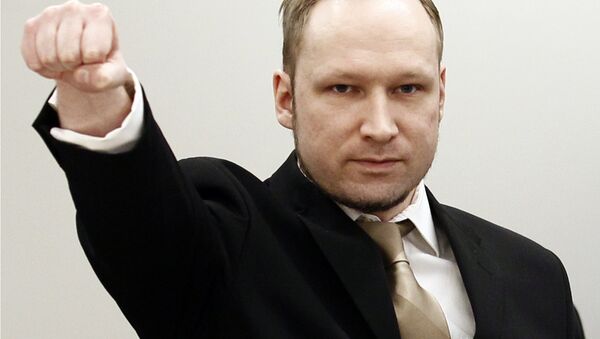News about the blast shook typically peaceful Norway, but that horror was just beginning. As the police forces rushed to the scene of the tragedy, Breivik, dressed in police uniform, headed to Utoya island, where he opened fire on a left-wing youth camp and killed 69 people, mostly teenagers.
Now that the mass murderer is fighting for better conditions in prison, horrifying memories are coming back to haunt survivors of the massacre who witnessed their friends being shot at point blank or drowning in the lake trying to escape, while families mourn their lost loved ones.
Breivik complains about his longstanding isolation, frequent strip searches, restrictions that prevent him from establishing contacts with other right-wing extremists. In 2013, he threatened to go on a hunger strike, demanding better video games, a sofa and a larger gym.
The government's attorney Marius Emberland has dismissed the accusations saying that "there is no evidence that the plaintiff has any physical or mental problems as a result of the prison conditions."
A four-day trial will start Tuesday in a gym located on the territory of Skien prison where Breivik is serving his sentence.
"I won't read newspapers that week," said Dag Andre Anderssen, an Utoya massacre survivor and the deputy leader of a support group for survivors and the bereaved. "Most people will just try to get on with their lives and not be affected. But for some maybe traumas will come back."
Anderssen called Breivik a "unique" inmate in Norway's prison system, which is focused on rehabilitating rather than punishing criminals.
"They say that every society is measured by how they treat their prisoners so we will allow him to use the system, to try to use the system against us," he added. "But I think the system will say that his conditions are as good as they can be."
For the country's deadliest attack since World War II, Breivik was punished with a 21-year sentence, which can be extended if he is still considered a danger to society. Video footage from the trial shows how respectfully Breivik was treated by Norwegian authorities, which shook foreign observers to the core. According to state officials, it was important to give Breivik the same rights as any other defendant.




